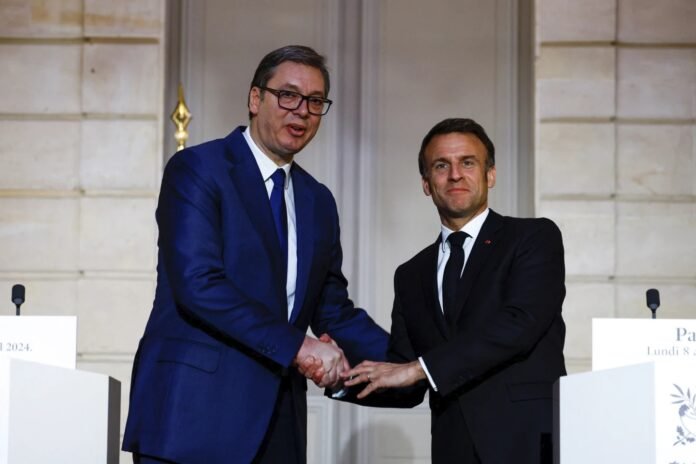
In a significant departure from its traditional military ties with Russia, Serbia stands on the brink of finalizing a monumental agreement with France for the procurement of 12 cutting-edge Rafale multi-purpose fighter jets.
President Aleksandar Vucic made the announcement on Tuesday during his visit to Paris, following extensive discussions with French President Emmanuel Macron and top defence officials.
The Serbian leader revealed that talks, which included representatives from Rafale manufacturer Dassault Aviation, had culminated in concrete agreements paving the way for the acquisition of these advanced aircraft.
President Vucic highlighted the depth of the negotiations, indicating a fundamental shift in military cooperation between Serbia and France.
The envisioned deal, expected to be formally sealed within the next two months in the presence of President Macron, signifies a significant milestone for Serbia, underscoring its intent to modernize and enhance its defence capabilities.
While specific financial terms have yet to be disclosed, pro-government Serbian media have estimated the total package to be around 3 billion euros ($3.2 billion).
The decision to pursue the Rafale jets has been under consideration by Serbian authorities for over two years, particularly in light of neighboring Croatia’s procurement of similar aircraft.
Croatia’s acquisition of 12 used Rafale jets for approximately 1 billion euros has likely influenced Serbia’s strategic calculus, prompting a reevaluation of its own military assets.
The Rafale fighter jet, renowned for its versatility and cutting-edge technology, represents a significant leap forward for Serbia’s air force.
With capabilities ranging from air defence and ground support to reconnaissance missions, these aircraft are poised to bolster Serbia’s defence posture significantly.
Moreover, the potential acquisition of Rafale jets not only underscores Serbia’s commitment to modernizing its armed forces but also signals a broader geopolitical shift.
Historically reliant on Russia for military equipment, this move towards diversification reflects Serbia’s desire to forge closer ties with European partners.
Beyond the realm of defence, the burgeoning partnership between Serbia and France holds the promise of expanded cooperation across various sectors.
President Vucic emphasized that the Rafale deal would serve as a catalyst for broader collaboration between the two nations, encompassing areas beyond the military sphere.
While the pending agreement marks a watershed moment in Serbia’s defence modernization efforts, it also carries broader implications for regional dynamics.
As Serbia seeks to assert its strategic independence and strengthen ties with European partners, the acquisition of Rafale jets is likely to recalibrate the geopolitical landscape in the Balkans.
In light of these developments, stakeholders both within and outside the region are closely monitoring the trajectory of Serbia’s evolving defence posture.
The impending conclusion of the Rafale deal not only underscores the country’s commitment to enhancing its military capabilities but also heralds a new chapter in its diplomatic relations with France and the wider international community.
As Serbia navigates this pivotal juncture, the imminent acquisition of Rafale fighter jets represents a decisive step towards modernization and strategic diversification, with far-reaching implications for the country’s security and geopolitical standing.
This article was created using automation and was thoroughly edited and fact-checked by one of our editorial staff members